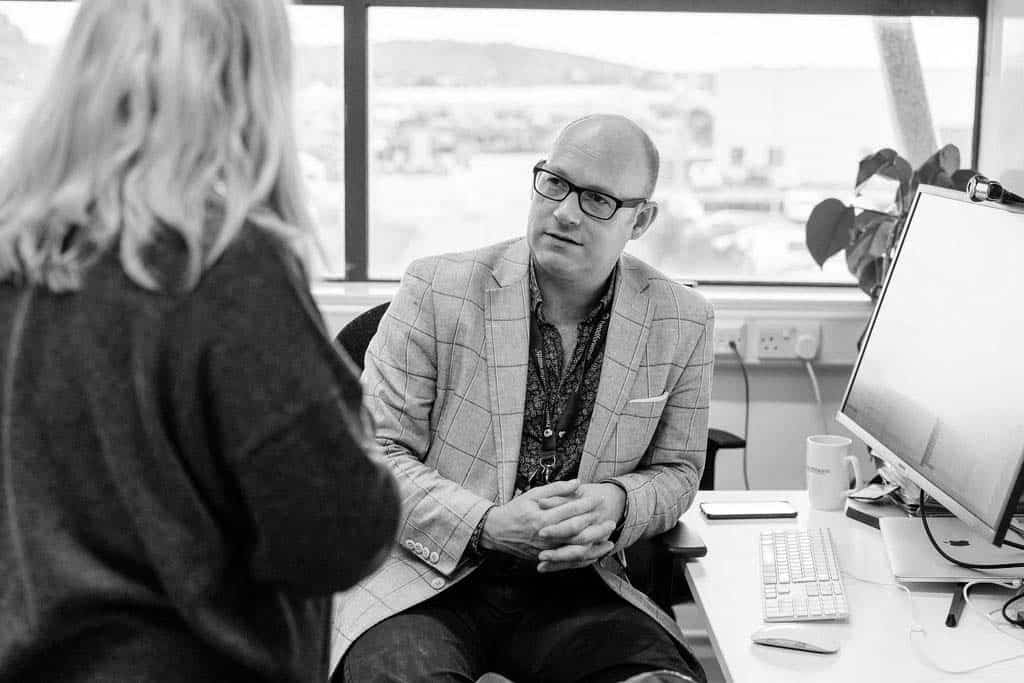
Why data quality is so important – and how you can improve yours
Data Solutions Designer Kanaga Selvi Nachiyar explains how we measure data quality and help organisations improve their data practices.
The Great Attrition, The Great Resignation, The Great Reshuffle – the media has been awash with different terms to describe a mass exodus of employees in the wake of the pandemic.
The situation has troubled employers – I’ve spoken to businesses where over 50% of their staff have changed within 12 months. Increased staff attrition on this scale has significant consequences on skills and knowledge retention within a business.
Rumours of huge salary hikes between positions are circulating, and fellow CEOs and CIOs are relaying stories of people leaving their current positions for pay rises in excess of £30k.
Turbulence in the market sparks everyone’s interest; employees wonder what’s going on, and employers want to know more – given how much a situation of this kind can shift the cost base of doing anything. But is it as bad as we think it is?
I wasn’t convinced, so I set about collating data to better understand how much the desperation to retain and attract staff is impacting salaries.
A market in flux
Over the last two years, there have been a number of false starts in terms of getting back to work. On several occasions it seemed things were returning to normal, but setbacks along the way have prevented things opening up. Over a long period of time, people’s behaviour has changed.
A recent McKinsey survey conducted across five countries including the UK revealed 40% of employees surveyed were at least somewhat likely to quit their job in the next three to six months, and 18% of respondents said their intentions range from likely to almost certain. The results were broadly consistent across industries.
Based on data sampled this year so far by Headforwards, within the software development jobs market approximately 16% of jobs require people to be in the office, 25% are hybrid – where people are expected to be in the office once a week at least but can work from home some of the time, and 59% are completely remote.
There has always been a geographical limit to where a person can apply for jobs: an individual has a limit to the daily commute they will endure – usually between 30 to 60 minutes. Based on the figures we have been looking at in 2022, anybody living anywherehas an opportunity to apply for nearly 70% of the jobs available across the whole of the UK. The market has completely changed.

The Results
Headforwards has tracked and continues to track salaries in the market on a monthly basis. The majority of jobs excluding the top 10th percentile and the bottom 10th percentile are in a similar range to those before the so-called Great Resignation, although subject to the general baseline salary trend increase of around 10%.
Whilst the data we have collated so far shows a trend of increasing salaries, bearing in mind the backdrop of rising inflation, in the main, the majority of jobs are in and around the same salary as they were before the Great Resignation occurred.
What next?
There’s no getting away from the fact that there is a push on salaries (albeit not as drastic as some media reports), which is increasing costs at a higher, faster rate than it has for a number of years.
With cost-of-living sky rocketing, salaries should be on the up – I don’t think they’re going to go down suddenly, but they will likely at least track inflation as a minimum, or at the most track up to 5% above inflation over the next few years, maybe 5% above inflation for another year or two.
If the current economic scenarios cause an economic slowdown, that may well reduce investment in new projects and the number of new roles being created, therefore reducing demand and taking the pressure off salaries.
When we locked down in March 2020, productivity didn’t appear to suffer; the tech stacked up, the various video conferencing platforms scaled, and the war-like resilience of people was effective in making things work. However, I think there’s a question over what will happen in the medium term.
Two years on, it’s unclear as to whether things might swing back to there being more roles that require people to be in the office all the time. The Agile Manifesto certainly champions teams working together in the same place.
If the level of remote and hybrid positions remains the same, there will always be high levels of attrition. However, if this happens there will come a point when salaries plateau because businesses simply can’t sustain it.
The Great Regret
It’s been fascinating looking at all the different behaviours, consequences and outcomes of what happens when a pandemic hits. Many predicted the short-term economic impact of businesses starting, stopping and going out of business would be drastic, but in fact the longer-term effects might be more significant.
The market is unsettled and will be for some time. It’s vitally important that as business owners trying to attract talent, we recognise that money is just one small part of the equation. We are dealing with a completely changed workforce.
‘A record number of employees are quitting or thinking about doing so. Organizations that take the time to learn why — and act thoughtfully — will have an edge in attracting and retaining talent.’ McKinsey
People’s lives have been turned upside down; they are fragile, and their priorities have changed. Many won’t be swayed by a few more thousands on the financial package, because it’s the interpersonal element they crave from an employer. Equally, with a cost of living crisis and potential recession, money will matter.
In a recent McKinsey article, one of the headings was: Top talent is interviewing you, not the other way around. Remote working means more choice, which makes it much easier to leave, but don’t forget that it also makes it easier to recruit if you’re offering the right package.
At Headforwards, we have a people first approach, so our focus is always on looking after teams. That focus however is on things like giving employees a meaningful role, inspiring them, helping them build up their skills, work with exciting clients and feel valued at work.
Keep an eye on salaries – of course, but be careful listening to extreme anecdotal examples and don’t try to compete on anything other than a great company culture.
Headforwards™ is a Registered Trade Mark of Headforwards Solutions Ltd.
Registered Address: FibreHub, Trevenson Lane, Pool, Redruth, Cornwall, TR15 3GF, UK
Registered in England and Wales: 07576641 | VAT Registration Number: GB111315770